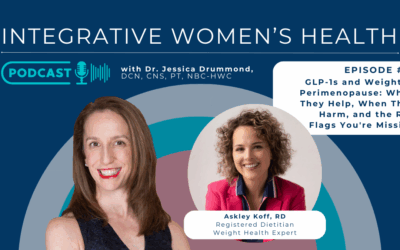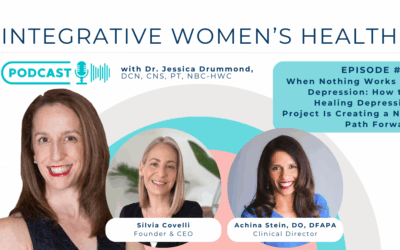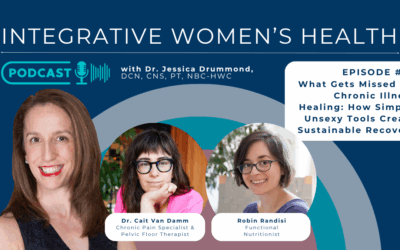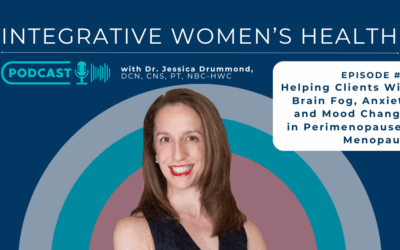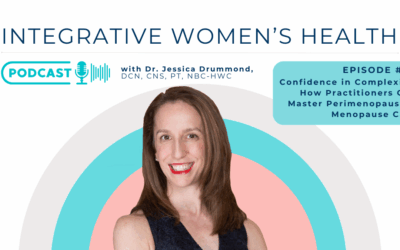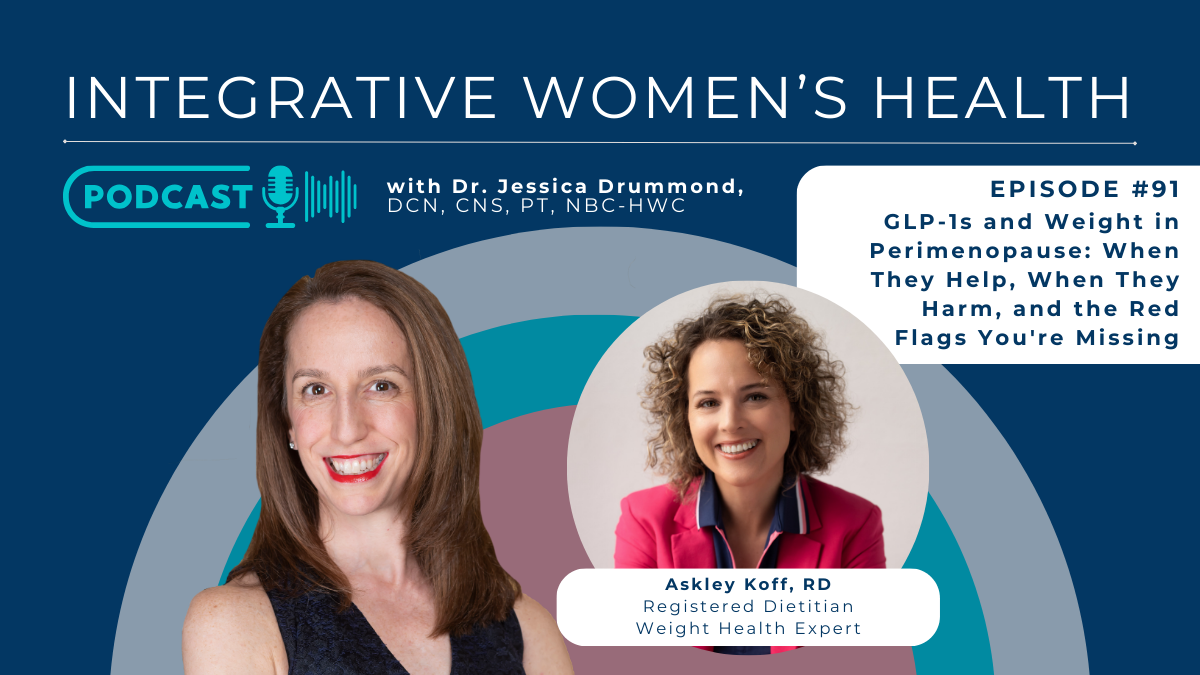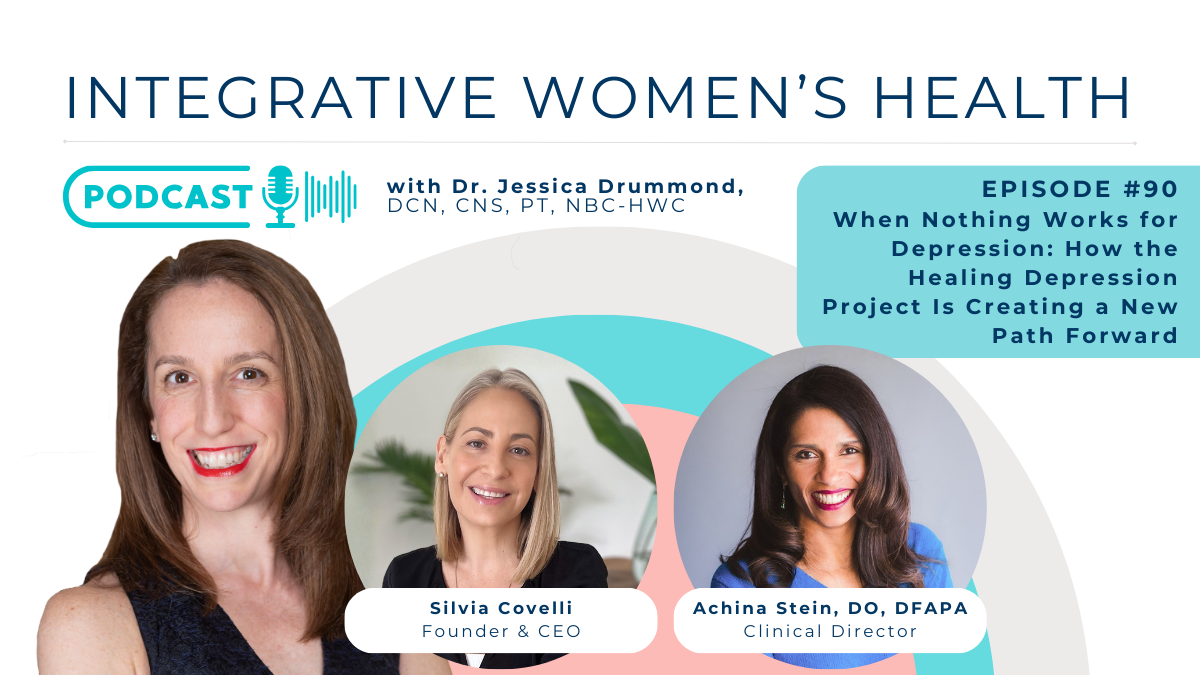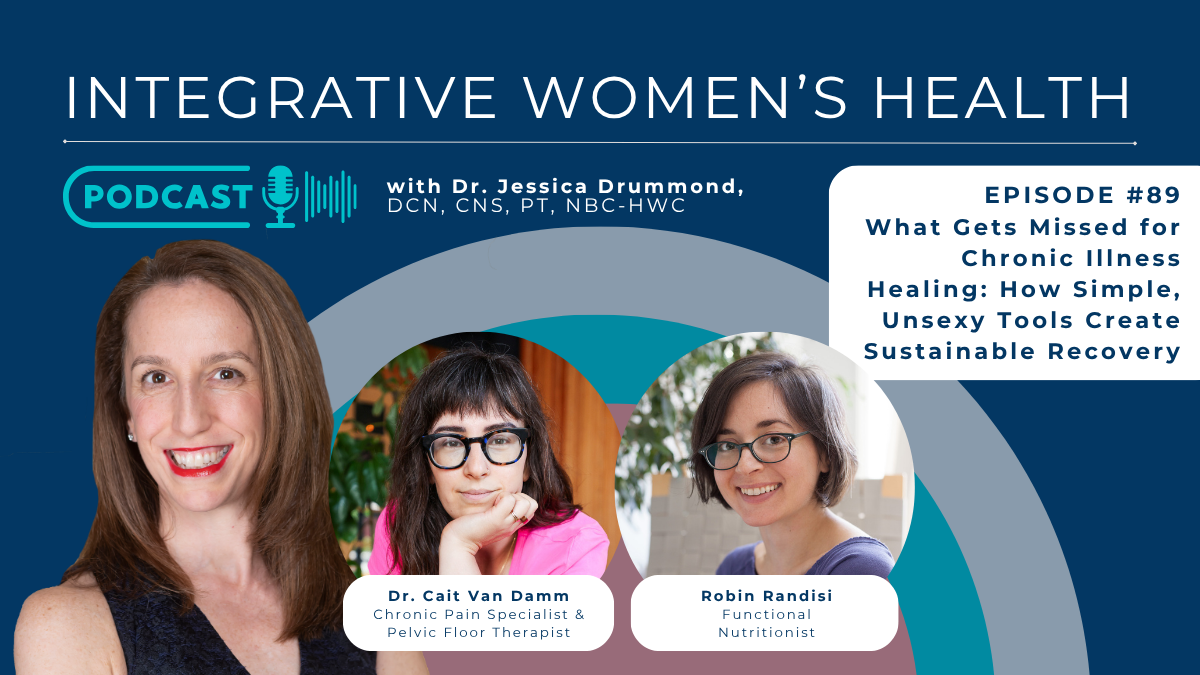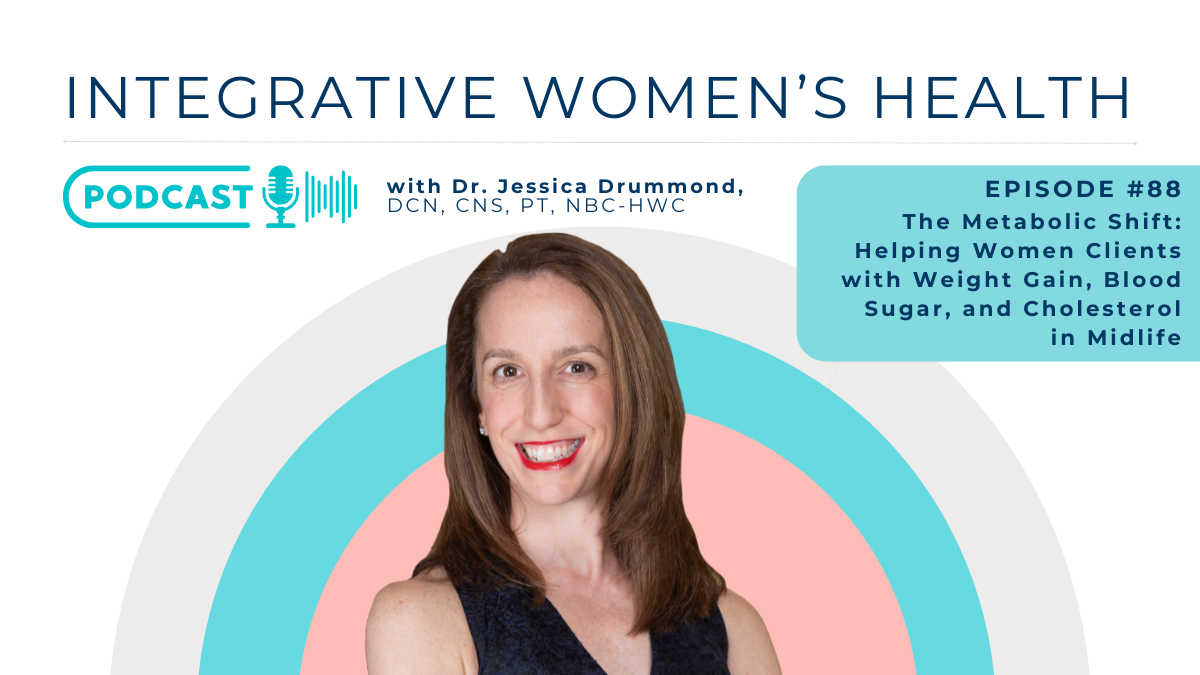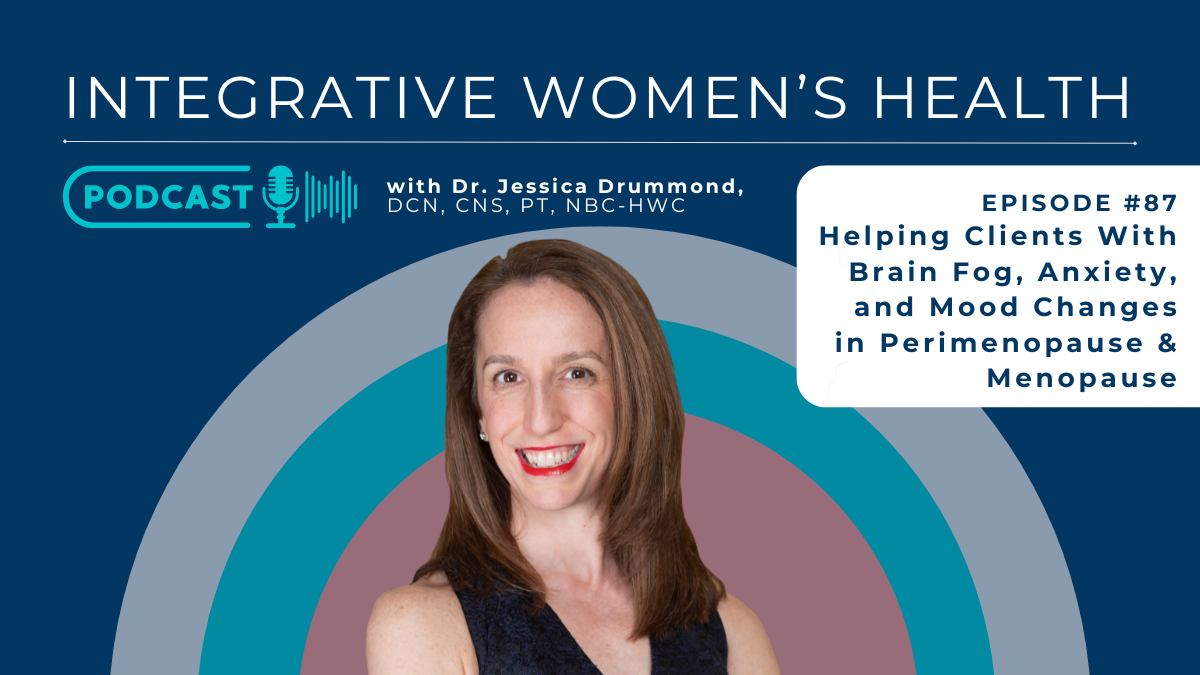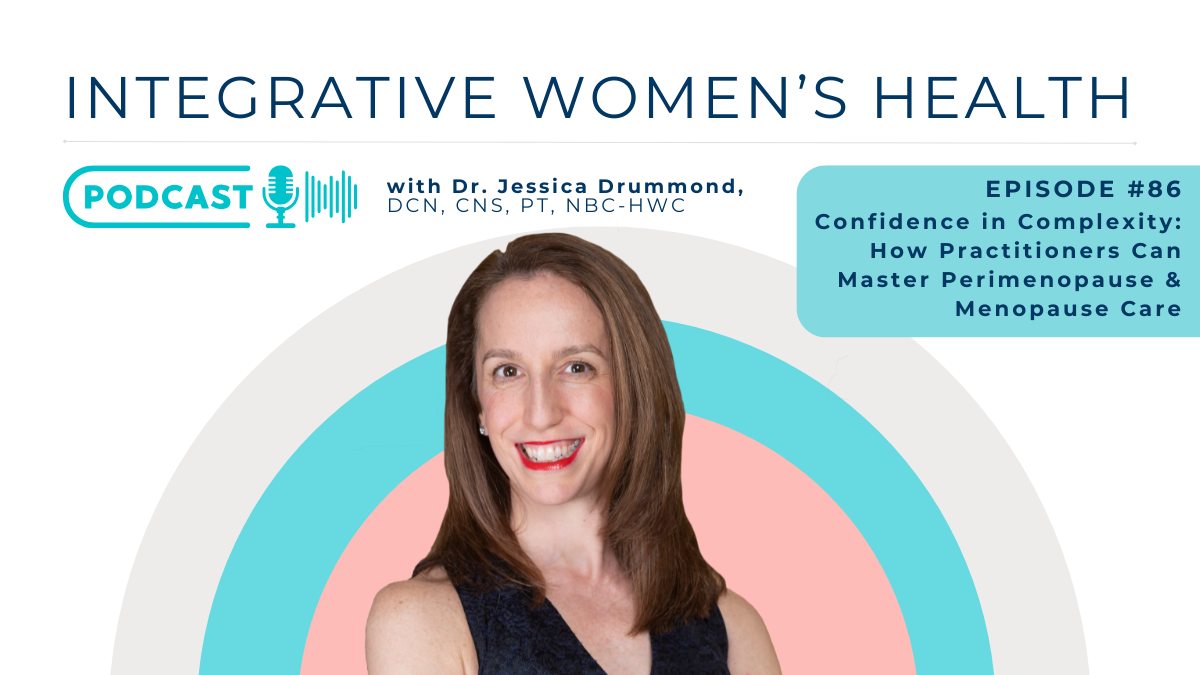Sleep issues and endometriosis often go hand in hand. Patients with endometriosis frequently struggle with a variety of sleep issues, including insomnia, pain-insomnia, poor sleep, chronic fatigue, restless leg syndrome, and more.
But…why is it so common for people with endometriosis to struggle with poor sleep and sleep issues?
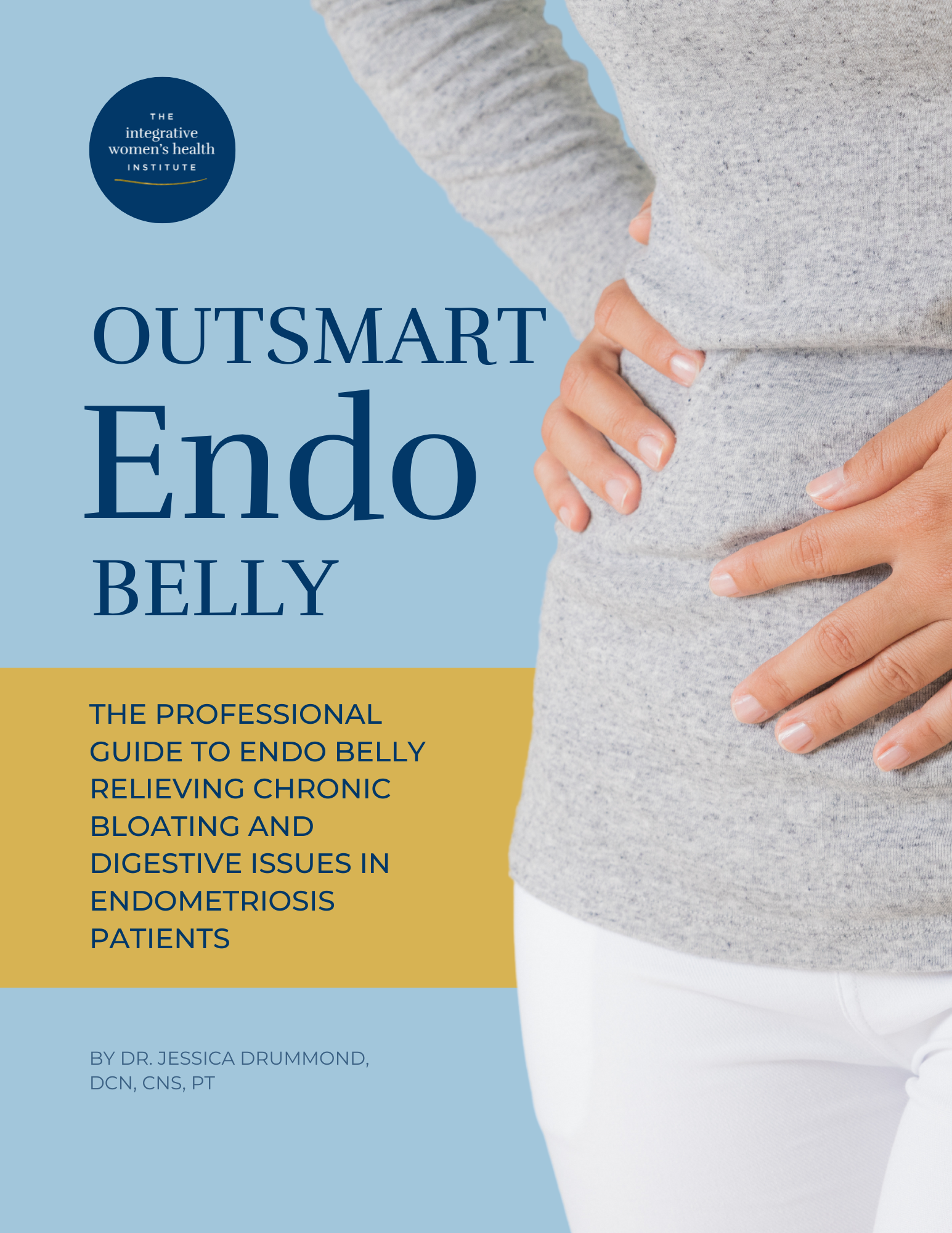
Download your free copy of the Outsmart Endo Belly eBook!
The Professional Guide to Relieving Chronic Bloating, Pain, and Digestive Issues in People with Endometriosis
When cortisol goes up, melatonin goes down.
Cortisol, a key stress buffing hormone, inhibits melatonin, and melatonin is an important hormone both for helping people to fall asleep and stay asleep.
Additionally, specifically in the case of endometriosis, melatonin acts as an anti-inflammatory pain reliever at the level of the brain.
With increased stress, most of the time, cortisol levels increase generally, throughout the day.
But, this is especially problematic when cortisol levels spike or increase at night. Cortisol spikes at night can make it harder to sleep and also can keep people from getting the recovery and repair that comes during deep sleep.
You see, melatonin is not just sleep-inducing, it’s pain-relieving, anti-inflammatory, and acts as an antioxidant, quenching oxidative stress.
Many endometrioses and chronic pain patients complain about their pain being worse at night, which in turn can cause a cortisol spike, which results in lower quality sleep. It can easily become a vicious cycle for many people struggling with chronic pelvic pain.
What elevates cortisol?
Cortisol increases as an adaptive response in an attempt to buffer stress. In general, cortisol increases in response to any stress, whether it’s emotional, physical, social, or spiritual. There are rare cases where cortisol levels are abnormally low.
But, here are many common conditions that tend to increase cortisol levels, inhibiting the benefits of melatonin:
-
-
Reactive Hypoglycemia: If someone eats too much sugar, especially at night, the insulin response tends to “overreact” causing a drop in blood sugar in the early hours of the following morning. If someone is waking up too early (usually between 2 am and 4 am), reactive hypoglycemia causing an early cortisol awakening response is usually to blame.
-
Stress, of nearly any kind.
-
Worried thoughts, anxiety, depression, or other mental health conditions.
-
Overwhelm.
-
Dysregulated circadian rhythm, possibly from spending too much time exposed to fluorescent light, exposed to blue light from screens, and not enough exposure to natural light.
-
Overtraining.
-
Lack of nutrient absorption.
-
Physical stress on the brain, such as blood sugar dysregulation, anemia (commonly due to excessive menstrual bleeding), or inflammation.
-
Any cause of inflammation, including gut microbiota disturbances, chronic viruses, heavy metal or other environmental toxicity, etc.
-
Chronic pain.
-
Sleep and Endometriosis Healing
Sleep is essential for energy and daily repair. It’s also clearly an essential tool in the fight against fatigue.
Women and people with endometriosis struggle with more chronic pain, lower sleep quality, and more sleep issues than those without endometriosis.
And, those with endometriosis with higher pain scores, suffer from lower sleep quality, when tested on the Post-Sleep Inventory.
Melatonin and Pain in Endometriosis
Endometriosis is at least partially an inflammatory disease.
The chronic pain that is often a part of living with endometriosis is associated with an increase in inflammatory cytokines and other markers.
In a randomized controlled trial, when melatonin was compared with placebo for women with chronic pelvic pain associated with endometriosis, the use of melatonin reduced daily pain scores and period pain, both by nearly 40%.
Specifically, “Post hoc analysis showed that compared with placebo, the treatment (10mg of melatonin daily for 8 weeks) reduced daily pain scores by 39.80% (95% confidence interval [CI] 12.88-43.01%) and dysmenorrhea by 38.01% (95% CI 15.96-49.15%).”
This melatonin treatment was also found to improve sleep quality in these women and reduce their need to use pain medication.
Specifically, melatonin reduces pain at the level of brain neurons by reducing the brain-derived neurotrophic factor (BDNF) level. Using 10mg of melatonin daily improved sleep quality, and reduced the risk of needing a pharmaceutical analgesic by 80%.
Does melatonin directly impact endometrial tissue?
Melatonin receptors are found on both normal endometrial tissue and ectopic endometriosis lesions.
Melatonin receptor 1A (MR1A) and Melatonin receptor 1B (MR1B) were localized by immunohistochemistry in cell cultures of endometrial biopsies from women with and without endometriosis.
Both receptors were found to be expressed in both normal endometrial tissue and endometriosis lesions. But, pr
otein expression of MR1A was decreased in peritoneal lesions compared to control eutopic endometrium.
MR1B expression did not differ between the tissue groups. Treating the tissues with melatonin inhibited estrogen-induced endometrial cell proliferation at 48 hours of culture.
Using Sleep and Melatonin to Reduce Inflammation and The Proliferation of Endometriosis
Clearly, sleep needs to be a priority for women with endometriosis.
Using melatonin directly as a supplement is one option for improving sleep.
Clinically, I prefer to begin with the lowest individualized effective dose, because 10mg can be excessive for some people.
Other supplements that can support better quality sleep for women with endometriosis that I commonly use in my practice are lavender, L-theanine, Lactium casein decapeptide, and GABA.
Other practices to improve sleep, lower cortisol levels, and get the anti-inflammatory and antioxidant benefits of melatonin for those with endometriosis:
-
Health coaching to address each individual’s stress and how to reduce the total stress load.
-
Anti-inflammatory diet.
-
Reducing or eliminating sugar, alcohol, and caffeine.
-
Daily exposure to at least 30-60 minutes of natural, outdoor light.
-
Turn off all blue light devices and in-home WiFi by 9 pm.
-
A calming sleep routine.
-
A cool dark room for sleeping.
-
A right-sized daily exercise program.
-
Regular massage therapy.
-
A high-protein snack before bed.
Prioritizing sleep and using melatonin and other sleep-supportive supplements and practices therapeutically are key parts of a holistic plan for addressing endometriosis symptoms.
Read More Endometriosis-Related Posts:
-
The Best Probiotics for Endometriosis and Chronic Pelvic Pain
-
CBD Oil and Cannabis for Endometriosis and Chronic Pelvic Pain Relief
-
The Outsmart Endometriosis Health Coaching Program – Learn More
References:
Mosher AA, Tsoulis MW, Lim J, Tan C, Agarwal SK, Leyland NA, & Foster WG. (2019) Melatonin activity and receptor expression in endometrial tissue and endometriosis, Hum Reprod, 34(7),1215-1224. doi: 10.1093/humrep/dez082.
Nunes FR, Ferreira JM, & Bahamondes L. (2015) Pain threshold and sleep quality in women with endometriosis, Eur J Pain, 19(1), 15-20. doi: 10.1002/ejp.514.
Schwertner A, Conceição Dos Santos CC, Costa GD, Deitos A, de Souza A, de Souza IC, Torres IL, da Cunha Filho JS, & Caumo W. (2013) Efficacy of melatonin in the treatment of endometriosis: a phase II, randomized, double-blind, placebo-controlled trial, Pain, 154(6), 874-81. doi: 10.1016/j.pain.2013.02.025.

Founder & CEO
Dr. Jessica Drummond,
DCN, CNS, PT, NBC-HWC
Dr. Jessica Drummond, DCN, CNS, PT, NBC-HWC, is the founder and CEO of The Integrative Women’s Health Institute, The Outsmart Endo Health Coaching Program, and the creator of the Women’s Health Coach Certification.
She is passionate about caring for and empowering people who struggle with women’s and pelvic health concerns. She is equally passionate about educating and supporting clinicians and wellness professionals in confidently and safely using integrative tools to transform women’s and pelvic healthcare.
Dr. Drummond has two decades of clinical experience as a licensed physical therapist, licensed clinical nutritionist, and board certified health coach working with women with pelvic pain, including endometriosis, vulvodynia, and bladder pain syndrome. She brings a unique, conservative, and integrative approach to supporting women to overcome hormonal imbalances, and chronic pain conditions.
She is a sought after international speaker on topics such as integrative pelvic pain management, natural fertility options, optimal hormone health, menopause, and female athlete nutrition. Dr. Drummond was educated at the University of Virginia, Emory University, Duke Integrative Medicine, and Maryland University of Integrative Health.
Read Related Posts from The Integrative Women's Health Institute Blog:



